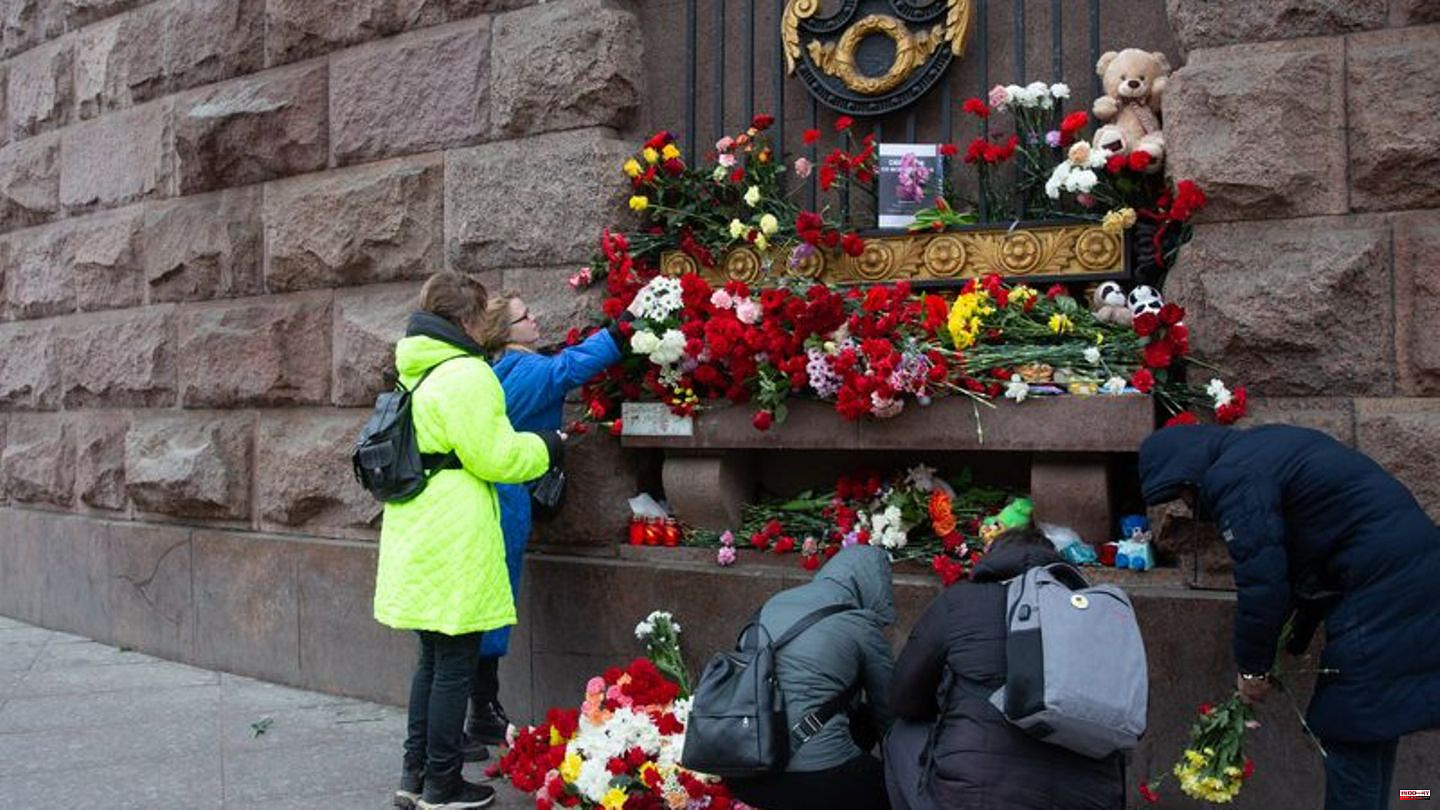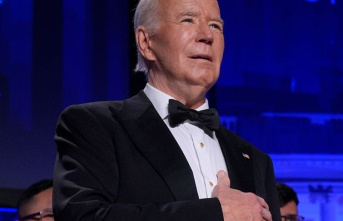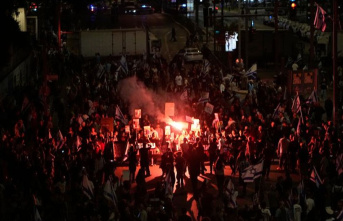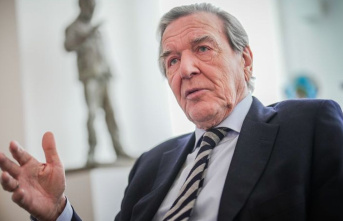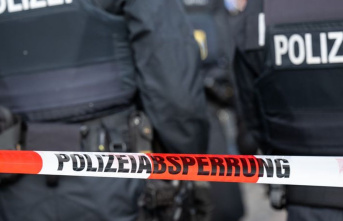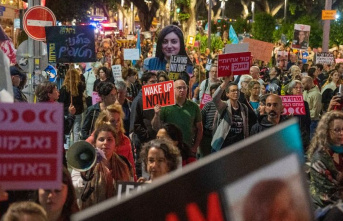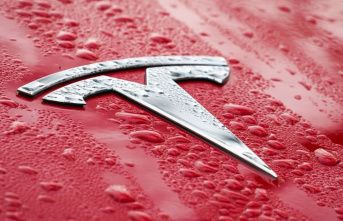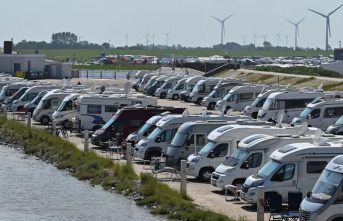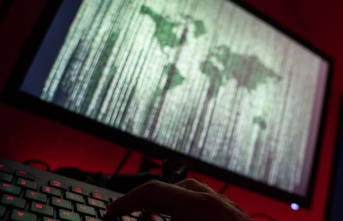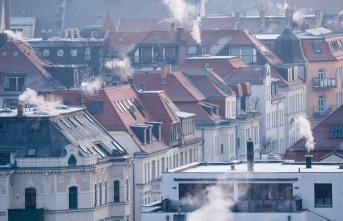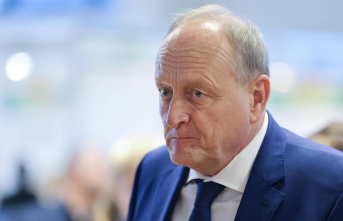The worst terrorist attack in Russia in years left more than 130 dead and over 150 injured at an event center near Moscow.
The Russian domestic secret service FSB says it has arrested eleven suspects, including four shooters who were allegedly directly involved in the crime. The terrorist militia Islamic State claims responsibility for the crime. Some questions and answers about the situation after the attack and the consequences:
What happened at Crocus City Hall and after?
The attack took place in Krasnogorsk, northwest of Moscow, at the popular Crocus City Hall event center. There is also a concert hall with more than 6,000 seats, where the Russian band Piknik was scheduled to perform on Friday evening. According to eyewitnesses, a white car drove up there shortly before 8 p.m. local time (6 p.m. CET). Armed men climbed out of it and opened fire on security guards and visitors with Kalashnikovs. The four shooters directly involved are said to have been in the building for less than half an hour. According to eyewitnesses, they also set fires with gasoline in the concert hall. The perpetrators were then able to escape in the car. According to official information, the car was then stopped during a chase in the Bryansk region.
There were several arrests. What is known about the alleged perpetrators?
In total, the Russian domestic secret service says eleven people were arrested. We're talking about "foreigners". According to official information, there were also weapons and Tajik passports in the getaway car. Videos and photos are circulating in Russian state media and social networks in which the alleged perpetrators can be seen - and are also being questioned about themselves. The authenticity of the videos could not initially be verified. According to Moscow state propaganda, it is alleged that these were men from the Central Asian ex-Soviet republic of Tajikistan who were bought for the crime. Russia said they were not religious fanatics and did not wear explosive belts. The information could not initially be verified.
Tajikistan, which borders Afghanistan, is known as a retreat for Islamist terrorists. However, it was unclear whether those arrested were actually citizens of Tajikistan. Tajikistan rejected this.
A court in Moscow issued the first arrest warrants against suspected actors in the evening. The investigative committee has already informed four suspects after the interrogations that charges will be brought against them for the deadly terrorist attack that they carried out together, the state agency Tass reported. A total of eleven suspects were arrested after the crime, four of whom are considered to be the actual shooters.
What is known about the Islamic State's claim of responsibility?
Shortly after the terrorist attack, the jihadist militia Islamic State (IS) claimed responsibility for the attack on its propaganda channel Amak. A day later, IS released a pixelated photo of the alleged attackers. Experts consider the letters of confession to be authentic. So far, serious IS attacks on Russian targets have been rare. The Islamists have also had Moscow's politics on their radar for several years. In previous speeches, the terrorist group accused Russia of shedding Muslim blood. In Afghanistan in particular, the legacy of the Soviet intervention 45 years ago still weighs heavily.
Experts also see an important motive for the attack in Vladimir Putin's military operation in Syria. The Kremlin chief is considered the most important ally of Syrian leader Bashar al-Assad. Russia repeatedly bombed Islamist positions to support Assad. After Friday's terrorist attack, ISIS warned "Russia and its allies" that ISIS fighters would "not forget their revenge." The attack targeted “thousands of Christians in a music hall,” it said in a statement.
Who is behind IS-Khorasan?
According to US media reports, a regional offshoot of the terrorist militia, the ISPK, with its original retreat areas in Afghanistan, is said to be responsible for the attack near Moscow. Federal Interior Minister Nancy Faeser (SPD) also sees corresponding indications of this.
The terrorist group first appeared in Afghanistan in 2015, where it wanted to establish a "province" called Khorasan in the border area with Pakistan. Khorasan refers to a region in ancient Persia that stretched across large parts of today's Afghanistan, Iran and Turkmenistan. The group is considered to be the mastermind of devastating attacks, including the suicide attack in Iran at the beginning of January that left almost 100 dead. An attack in front of the Russian embassy in Kabul in autumn 2022 is also said to have been carried out by the ISPK.
Two suspected Islamists from the IS branch were arrested in Germany last week. They are said to have planned an attack on the Swedish parliament. According to Faeser, the greatly increased protective measures taken by the security authorities in Cologne around Christmas and New Year's Eve were also intended to protect against possible attack risks from the branch.
Exactly how the regional IS terrorist cells operate today and who finances them is unknown. The group has no identifiable leader and no central headquarters. This is also why analysts disagree about how big the international ambitions of the regional IS actually are.
What other versions are there about the terrorist attack?
Russian state media and propagandists, however, see the Ukrainian secret service in Kiev as the masterminds. Experts there with contacts in the Islamist scene are said to have ordered the attack. The suspects who have now been caught are said to have believed that they were dealing with IS. Kremlin chief Putin also sees a Ukrainian trail. He accused Kiev of having organized an escape route for the perpetrators in Ukraine. Kyiv rejected this. International experts also consider Russia's allegations to be absurd; Russia has not provided any evidence to support the claims.
In the past, Putin was repeatedly suspected of having his secret services organize terrorist attacks in order to gain political benefit from them. Moscow Foreign Ministry spokeswoman Maria Zakharova sharply rejected this accusation, which was also spread by the media in Kiev.
How could such a terrorist attack occur in Russia?
For Putin's domestic secret service, the FSB, the attack is a major disaster because it represents a well-organized surveillance state, total control and security. The FSB repeatedly announces the arrest of alleged terrorists and the thwarting of attacks. Putin himself took 19 hours to address his compatriots in a personal video message. However, he failed to explain how this could have happened despite all the safety precautions.
During a speech to the FSB this week, Putin ignored recent warnings from the USA and other countries about an impending terrorist attack. The West is using such provocations to destabilize the situation in Russia, he claimed.
What consequences can be expected after the terrorist attack?
The consequences after such terrorist attacks are always far-reaching in Russia. Particularly prominent are new demands from the Kremlin party United Russia to reintroduce the death penalty in order to provide greater deterrence to perpetrators. It is to be expected that security precautions will be significantly tightened. Putin could also use the attack to increase political repression. And he could significantly raise the stakes again in his war of aggression against Ukraine, which has been going on for two years. There is also speculation in Moscow about a new mobilization of reservists in order to take over more areas in Ukraine more quickly.

